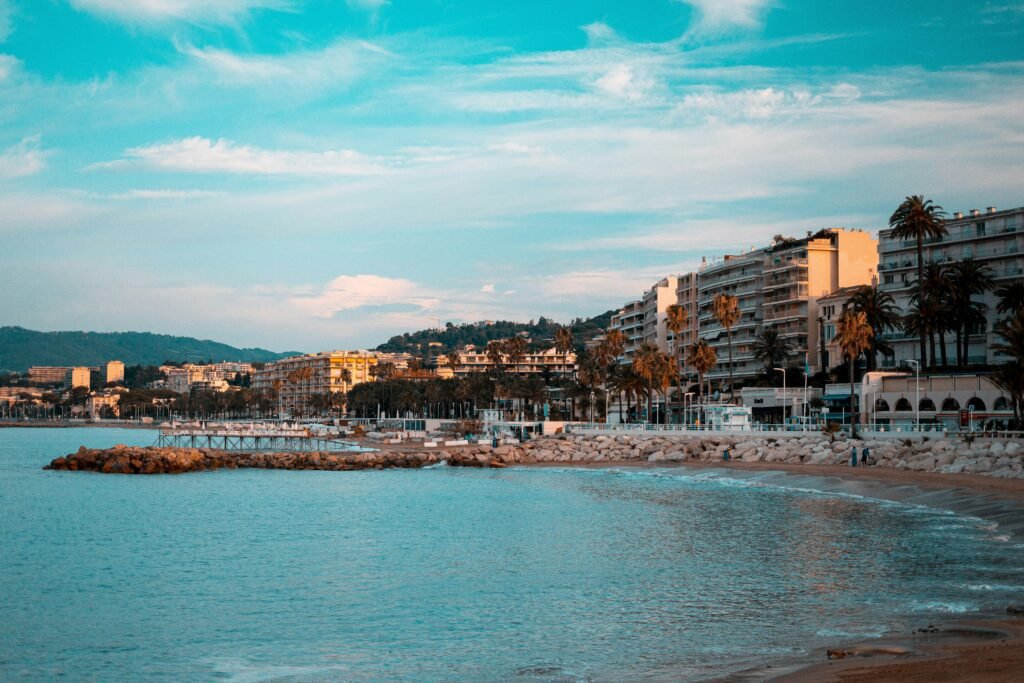
Cannes, nestled along the sparkling French Riviera, evokes images of red carpets, glamorous celebrities, and cinematic masterpieces. But the allure of Cannes as a global center for film extends far beyond its contemporary glitz. Unveiling the city’s rich history and the factors that make it the perfect stage for prestigious film festivals like Cannes unlocks the magic behind this annual cinematic spectacle.
From Humble Beginnings to Festival Hub: A Riviera Town’s Transformation
Cannes’ story as a film festival destination has its roots in the pre-war era. In the 1930s, several European countries, including Italy, boasted established film festivals. France, however, lacked a similar platform to showcase its burgeoning cinematic talent. This desire to compete with Italy’s Venice Film Festival is largely credited with the birth of the Cannes Film Festival.
The inaugural edition, however, was marred by World War II. Following the war’s conclusion, the French government, along with film professionals, revived the festival in 1946. The idyllic setting of Cannes, bathed in sunshine and boasting a burgeoning tourist industry, proved to be a perfect choice. Luxury hotels provided opulent accommodation for celebrities, while the picturesque beaches offered a glamorous backdrop for the event.
The Palais des Festivals: A Stage Fit for Silver Screen Dreams
The creation of a dedicated venue specifically designed for the festival further solidified Cannes‘ position as a film hub. The Palais des Festivals et des Congrès, inaugurated in 1941, became the heart of the festival. This grand structure, overlooking the azure Mediterranean, housed screening rooms, exhibition spaces, and red-carpeted walkways – everything needed to elevate the festival experience.
Beyond Location: Fostering Collaboration and Cultural Exchange
Cannes’ appeal goes beyond its idyllic setting and luxurious amenities. The festival has a long-standing tradition of promoting international collaboration within the film industry. It provides a platform for filmmakers from across the globe to showcase their work, fostering cultural exchange and artistic dialogue. The prestigious Palme d’Or, the festival’s highest honor, is a coveted prize, attracting international submissions and ensuring a diverse array of films compete for recognition.
The Star Power Factor: Cannes and the Glamour of Celebrity Culture
The presence of A-list celebrities adds another layer to Cannes’ allure. The festival attracts renowned actors, directors, and industry personalities, transforming the event into a star-studded spectacle. The red carpet arrivals, the dazzling outfits, and the paparazzi frenzy create a media circus that amplifies the festival’s global reach and generates immense publicity for the films in competition.
Economic Impact: A Boon for Tourism and International Recognition
The Cannes Film Festival is not just a cultural event; it’s a significant economic driver for the region. The influx of tourists, filmmakers, and media personnel generates substantial revenue for the city’s hotels, restaurants, and luxury businesses. Furthermore, the global media attention shines a spotlight on Cannes, promoting it as a premier tourist destination.
A Legacy of Cinematic Excellence: Cannes and the Future of Film
Over the decades, the Cannes Film Festival has established itself as a prestigious platform for launching the careers of filmmakers and propelling iconic movies into the global spotlight. From classics like “La Dolce Vita” to contemporary masterpieces like “Parasite,” the festival has played a pivotal role in shaping the landscape of world cinema.
Looking ahead, Cannes is likely to remain a coveted destination for film festivals. The city’s commitment to cinematic excellence, its luxurious setting, and the star power it attracts all contribute to its enduring allure. As the world of cinema continues to evolve, Cannes will undoubtedly adapt and remain a stage where cinematic dreams are born, celebrated, and shared with the world.








